I created a CA using OpenSSL and used it to sign a certificate for my localhost, and also a secondary DNS entry on my localhost, preview-localhost. I have installed the CA cert into the Trusted Root Certificate on my machine, and added my localhost certificate to IIS. When I view the signed localhost certificate, I see these errors:


The installed CA cert says that it is intended for all issuance and application policies on its viewer. I have included the output for both certificates from OpenSSL. I have replaced any sensitive (and some insensitive information) with <description text>.
CA Certificate
Certificate:
Data:
Version: 3 (0x2)
Serial Number:
<Serial Number
Signature Algorithm: sha256WithRSAEncryption
Issuer: C=<Country>, ST=<State>, L=<Ventura>, O=<MyOrganization>,
OU=<Some Authority>, CN=<SomeAuthority>/emailAddress=<email address>
Validity
Not Before: Apr 27 16:17:41 2015 GMT
Not After : Apr 24 16:17:41 2025 GMT
Subject: C=<Country>, ST=<State>, L=<Ventura>, O=<MyOrganization>,
OU=<Some Authority>, CN=<SomeAuthority>/emailAddress=<email address>
Subject Public Key Info:
Public Key Algorithm: rsaEncryption
Public-Key: (2048 bit)
Modulus:
<Modulus>
Exponent: <Exponent>
X509v3 extensions:
X509v3 Subject Key Identifier:
<Subject Key Identifier>
X509v3 Authority Key Identifier:
keyid:<keyid>
X509v3 Basic Constraints:
CA:TRUE
X509v3 Key Usage:
Digital Signature, Key Encipherment
X509v3 Subject Alternative Name:
DNS:localhost, DNS:preview-localhost
Signature Algorithm: sha256WithRSAEncryption
<Signature>
Local host certificate
Certificate:
Data:
Version: 3 (0x2)
Serial Number:
<Some Serial Number>
Signature Algorithm: sha256WithRSAEncryption
Issuer: C=<Country>, ST=<State>, L=<Ventura>, O=<MyOrganization>,
OU=<Some Authority>, CN=<SomeAuthority>/emailAddress=<email address>
Validity
Not Before: Apr 27 18:09:18 2015 GMT
Not After : Apr 26 18:09:18 2016 GMT
Subject: C=<Country>, ST=<State>, L=<Ventura>, O=<MyOrganization>,
CN=localhost/emailAddress=<Email Address>
Subject Public Key Info:
Public Key Algorithm: rsaEncryption
Public-Key: (4096 bit)
Modulus:
<Modulus>
Exponent: <Exponent>
X509v3 extensions:
X509v3 Basic Constraints:
CA:FALSE
X509v3 Key Usage:
Digital Signature, Non Repudiation, Key Encipherment
Netscape Comment:
OpenSSL Generated Certificate
X509v3 Subject Key Identifier:
<SKI>
X509v3 Authority Key Identifier:
keyid:<KEY ID>
X509v3 Subject Alternative Name:
DNS:localhost, DNS:preview-localhost
Signature Algorithm: sha256WithRSAEncryption
<Signature>
Any help figuring out why my localhost certificate can't follow the path to the CA would be very much appreciated. THANK YOU!